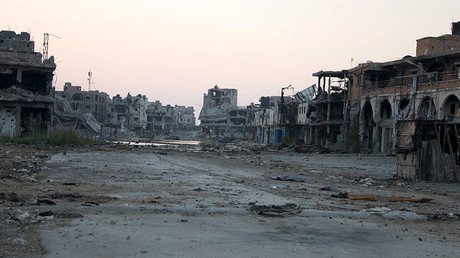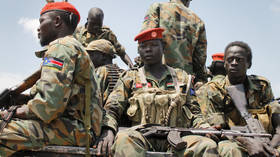Libyan central bank struggles to open Gaddafi golden coins vault, hires safecrackers
With Libya suffering dire economic problems, a stash of golden and silver coins worth $184 million locked in a Gaddafi-era vault in the eastern city of Beyda could be worth its weight in gold. The snag is, the local officials don’t have the code.
As if the crash in the price of oil was not enough for energy-rich Libya, the country is also having to deal with two rival governments opposed to one another, as well as the threat posed by Islamic State (IS, formerly ISIS/ISIL), which has made gains in coastal areas.
Oil output is currently less than a quarter of the 1.6 million barrels per day, which were being produced in Libya under former leader Muammar Gaddafi.
These financial problems have led to a catastrophic shortage of cash in Libya, so the $184 million locked in the central bank vault in Beyda would come in more than handy. However, the local central bank governor doesn’t have the necessary five-digit code to unlock the vault, the Wall Street Journal reports.
The rival government in Tripoli has the code but will not hand it over, fearing the cash could end up funding militias.
Even if the authorities do manage to get to the coins, they will face another significant problem as they all bear Gaddafi’s face.
“I can’t sell them as they are,” Ali El Hibri, the central bank governor in eastern Libya told the Wall Street Journal. “I don’t want to cause any controversy in the street by advertising the face of Gaddafi.”
El Hibri has even contemplated melting down the gold and silver coins in order to provide the much-needed funds. However, the governor still has the task of trying to crack open the safe.
El Hibri has a plan for this as well and has enlisted the help of a pair of safecrackers, who believe they are capable of forcing open the almost 50-year-old safe.
Khaled, one member of the duo, says the main task will be to get beyond the protective wall, which will need to be done by drilling a 50 centimeter by 50 centimeter hole, which will allow them to get through to the doors with the five-digit code.
This is where Khaled’s partner will come in, as the locksmith will attempt to break the code using “special techniques,” in a plan which would not look out of place in a Hollywood blockbuster.
Just three months ago, US Secretary of State John Kerry summed up just what a challenge Tripoli faces, saying that Libya risks becoming “a failed state” if the UN-brokered unity government flops.
“We have been working really hard for the last months, particularly, to bring together the government in Tripoli,” Kerry told the House Appropriations Committee on Foreign Operations. “We have a prime minister designate, we have a government now; we have a couple of outliers that are resisting that effort. If they cannot get themselves together, yes it will be a failed state.”
Since the 2011 ouster and killing of its long-term leader, Gaddafi, Libya has essentially been “torn apart” by two factions based at opposite ends of the country and they are simultaneously claiming power.
After an election in 2014, an Islamist-dominated body settled in Tripoli in the west, while an internationally recognized legislature is based in the eastern city of Tobruk.















